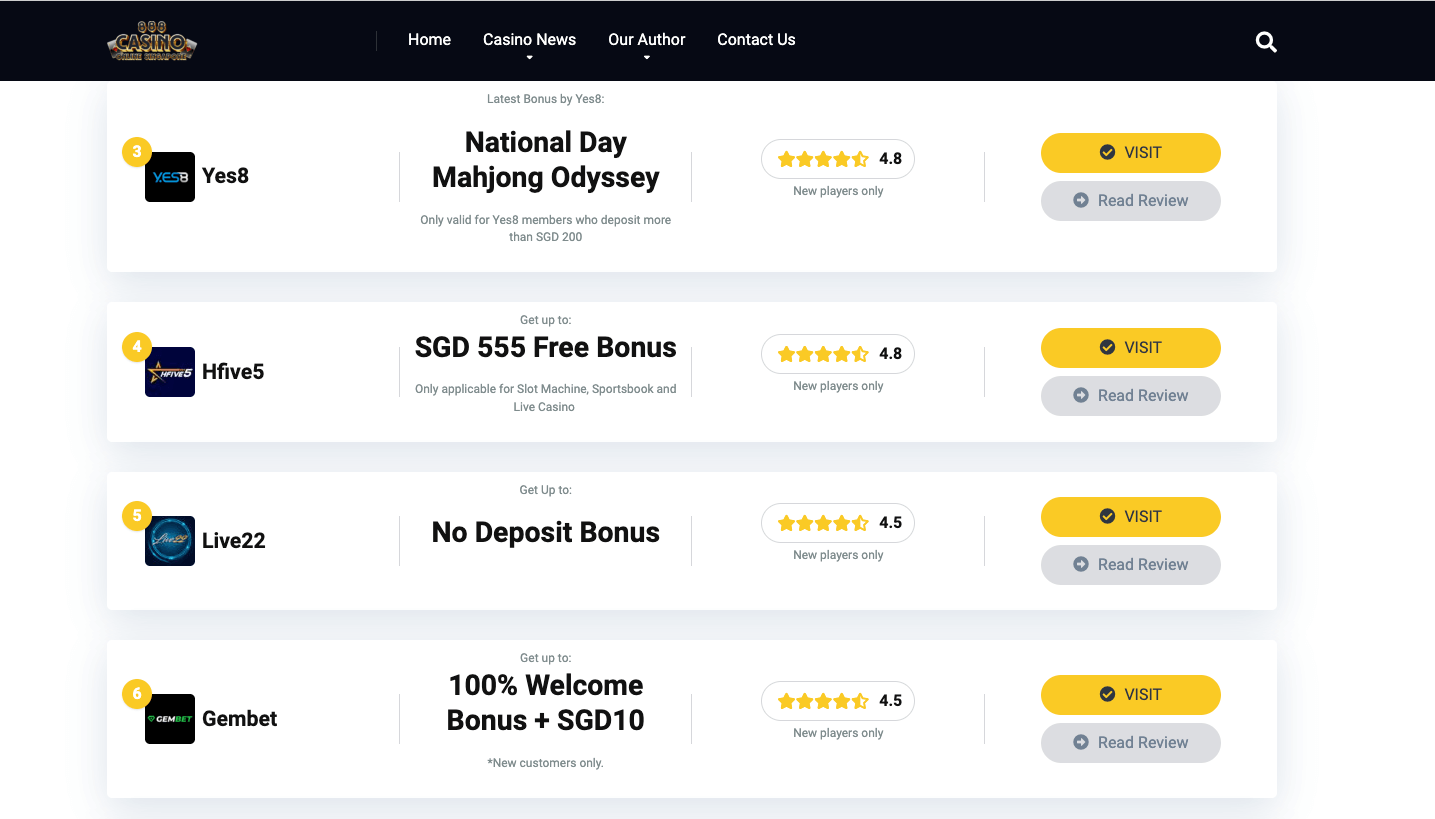The dawn of the 21st century has witnessed significant transformations in many industries, and the gaming sector has not been immune. With the advent of the Internet and the proliferation of smartphones, the digital gaming industry has experienced a meteoric rise, both in terms of its reach and economic significance. At the center of this transformation stands online gambling – a segment that has become a cornerstone of digital entertainment and a significant contributor to the global economy.
Understanding the Magnitude
The digital gaming industry, in recent years, has undergone a staggering metamorphosis, transitioning from a niche form of entertainment to a mainstream cultural phenomenon. In 2021, industry forecasts indicated that the global games market was poised to surpass a staggering $159.3 billion in revenues. To put this into perspective, this figure not only rivals but even surpasses revenue streams from titanic industries like the global film sector. This evolution of gaming from mere pastime to a significant economic powerhouse is a testament to its expanding reach and the technological advancements propelling it.

A crucial component of this vast market is the realm of online gambling, which has seen surges in popularity and financial inflow. This segment’s growth rate in some regions is similar, if not more impressive, than the broader digital gaming market. The reasons are multifaceted. Online gambling platforms offer a blend of convenience, variety, and interactive experiences, catering to diverse demographics. With the touch of a button, players can indulge in a wide range of activities, from slot machines to poker tables, all from the comfort of their homes.
Singapore Online Casino has become an intriguing focal point in this landscape. Known for its stringent regulations and an emphasis on maintaining social standards, the nation has been an unexpected yet significant contributor to the online gambling ecosystem. With a population that possesses high internet literacy and disposable income levels, coupled with a penchant for entertainment, it has become a hotspot for digital gaming and online casinos.
Online casinos in Singapore are not just about traditional gambling games. They offer a vast array of gaming options, from live dealer games that replicate a real-world environment to unique, localized content catering specifically to the Asian market. These platforms have tapped into a previously underserved audience, ensuring a blend of cultural familiarity with the excitement of online gambling.
However, it’s not just the variety that makes the market in Singapore stand out. It’s the sheer quality of the experience. Leveraging state-of-the-art technology, these platforms offer seamless and secure user experiences. Blockchain technology ensures transparent transactions, while advanced encryption protocols guarantee user data safety. Moreover, with the nation being a hub for tech innovations, many platforms are increasingly incorporating features like augmented reality and virtual reality, further enhancing user immersion.
Another noteworthy trend in this realm is the emphasis on responsible gambling. Given the nation’s proactive stance on ensuring the well-being of its residents, many platforms incorporate mechanisms to help players keep track of their spending and time. Features like self-exclusion, deposit limits, and reminders are common, underscoring the industry’s commitment to providing not just entertainment but also a safe environment for its users.
In conclusion, while the digital gaming industry’s phenomenal growth on the global stage is indeed commendable, regional markets like Singapore further accentuate its success. By blending technology, cultural nuances, and a commitment to responsible gaming, the nation stands as a testament to how local markets can effectively harness global trends. As the world continues to embrace digital entertainment, areas like Singapore will undoubtedly play a pivotal role in shaping its future trajectory.
Economic Contributions: Direct Impacts
Revenue Generation
The heart of any industry is its capacity to generate revenue, and online gambling is no exception. Platforms such as online casinos, poker sites, and sports betting apps have tapped into the public’s desire for convenient entertainment. Gone are the days when one had to plan a trip to a casino or make their way to a betting shop. Today, with just a few clicks, consumers can immerse themselves in the world of online gambling, anytime and anywhere. This convenience factor, coupled with a wide variety of games and betting options, has catapulted platforms like ‘online casino sg’ to the forefront of the industry, significantly broadening the user base.
Taxation and Licensing
The impressive revenue generated by online gambling did not go unnoticed by governmental bodies. Recognizing the vast potential for additional state and national income, governments worldwide moved swiftly to regulate and integrate this budding industry into their economic plans. By offering licenses to operate, governments ensured a standardized and ethical operation of these platforms. Moreover, by taxing the operators, substantial revenue flowed into the government coffers, aiding various public projects and welfare schemes. A testament to this is the UK’s success with its remote gambling sector. Between October 2019 and September 2020, the sector amassed a gross gambling yield of over £5.7 billion, showcasing the immense potential of the online gambling industry.
Job Creation
Economic contributions of an industry aren’t solely about direct revenue or taxation. A pivotal aspect is its capacity to create employment opportunities, and the online gambling industry shines brightly in this respect. As the sector grew, so did the demand for various skill sets. Software developers were required to craft engaging and secure games. Customer support representatives became essential to guide and assist users. Cybersecurity experts were hired to ensure the safety of both the platforms and the players. Marketing professionals were brought onboard to strategize and expand the user base. The list goes on. In essence, as platforms like online casino sg expanded, so did the job opportunities, contributing to reducing unemployment rates in many regions and offering lucrative career paths for many.
The digital wave transformed numerous sectors, and online gambling was among the beneficiaries. By introducing convenience and a vast array of choices, platforms drew in millions of users, generating impressive revenue. Recognizing the potential, governments swiftly intervened with regulations, ensuring ethical practices and adding another stream of income via taxation. Lastly, the employment opportunities generated by this industry have been commendable, supporting a myriad of professionals across various fields. The economic ripple effect of online gambling is undeniable, and its contributions are slated to grow even further in the coming years.

Economic Contributions: Indirect Impacts
Every time a major industry emerges or grows, there’s an unmistakable direct economic contribution it brings. This could be in the form of job creation, revenue generation, and increased Gross Domestic Product (GDP). However, often overlooked are the subtle yet substantial indirect impacts that these industries bring to the table. These indirect influences often traverse sectors, regions, and even generations. This article sheds light on these auxiliary benefits, delving deeper into the economic ripple effects created by booming industries.
1. Supply Chain Augmentation
For every primary product or service an industry offers, there’s an intricate web of suppliers, logistics providers, manufacturers, and ancillary service providers working behind the scenes. Consider the smartphone industry, for example. While the direct economic impact might be the sale of the phone, the indirect impacts include the myriad of component suppliers, software developers, and accessory manufacturers. This symbiotic relationship not only boosts these interconnected sectors but also fosters innovation and competition.
2. Local Community Upliftment
A thriving industry invariably leads to the prosperity of the local community. Infrastructure improvements, better public services, and increased local trade are typical positive outcomes. An ideal illustration of this is the tourism industry. While the direct impact may be revenues from tourists, the indirect impacts include the growth of local handicrafts, restaurants, and cultural events, benefiting the community at large.
3. Creation of Peripheral Job Roles
Beyond the primary job roles that an industry creates, there are numerous peripheral positions that emerge. Using the healthcare sector as an example: while doctors and nurses are the direct job roles, the industry also necessitates positions in healthcare IT, medical equipment sales, and even roles in medical transcription. These are positions that might not exist without the primary industry yet play crucial roles within the ecosystem.
4. Encouragement of Research and Development
Many industries, especially tech-driven ones, indirectly promote research and development. As companies seek to outdo competitors or pioneers in their fields, investments in R&D grow. This not only leads to advancements within the industry itself but often results in spill-over innovations that benefit other unrelated sectors.
5. Real Estate and Housing Growth
Whenever a new industry booms in a particular region or city, there’s a subsequent rise in the real estate and housing sectors. As employees migrate to work in these industries, the demand for housing, rental properties, and infrastructure grows. Cities globally have transformed with the growth of particular industries, be it Silicon Valley with tech or Dubai with oil and tourism.
6. Educational & Skill Development Opportunities
The demands of a growing industry often necessitate specialized skills and knowledge. This, in turn, paves the way for educational institutions to introduce new courses, training programs, and research opportunities tailored to the industry’s needs. Over time, regions can become knowledge hubs for specific sectors, attracting talent and fostering innovation. A classic case is the rise of IT training institutions in places like Bangalore, India, catering to the city’s booming tech industry.
7. Cultural Exchange and Globalization
Certain industries, especially those operating on a global scale, lead to increased cultural exchanges. Professionals from different countries collaborate, trade partnerships are formed, and as a result, there’s a blending of cultures, ideas, and perspectives. This indirect impact can lead to more inclusive workplaces, diverse cities, and a broader understanding of global nuances.
8. Environmental Considerations
The growth trajectory of industries often prompts environmental considerations, either due to regulatory pressures or corporate social responsibility. While this might seem like a counteractive measure, in many cases, it leads to sustainable practices, innovations in green technology, and a general push towards eco-friendly operations.
The indirect impacts of industries on the economy are multifaceted and far-reaching. While the direct contributions are easily quantifiable and evident, these auxiliary benefits shape societies, drive innovations, and contribute immensely to the global economy. Recognizing these impacts allows stakeholders, from policymakers to investors, to make informed decisions, ensuring that the industry’s growth is holistic, sustainable, and beneficial for all.

The Technology Dividend
Online gambling isn’t just about placing bets. It’s about the user experience, safety, and innovation. Consequently, this has led to a surge in technological advancements. Blockchain for transparent betting, virtual reality for immersive casino experiences, and artificial intelligence for personalized gaming are just a few examples.
Challenges and Concerns
The online gambling industry, like many other rapidly-growing sectors, is a double-edged sword. Its meteoric rise and widespread acceptance have unlocked a treasure trove of economic benefits, from job creation to massive revenue inflows. However, as with all powerful tools, it comes with its own set of challenges and concerns. Below, we delve deeper into the intricacies that both industry insiders and regulatory bodies face as they navigate this vast digital landscape.
1. Regulation: Striking the Right Balance
At the heart of the online gambling industry’s challenges is the issue of regulation. Ensuring that consumers are protected while also fostering an environment conducive to growth and innovation is a herculean task.
-
Over-regulation: Imposing too many restrictions or high taxes can discourage potential investors and entrepreneurs, leading to stagnation. Furthermore, over-regulation can drive the industry underground, resulting in a rise in illegal and unregulated platforms, which pose even greater risks to consumers.
-
Under-regulation: On the flip side, a lack of stringent rules can lead to the proliferation of unethical operators, who may employ deceptive practices, compromise on user data protection, or offer skewed odds, all of which jeopardize user trust and industry reputation.
Balancing these two extremes requires constant dialogue between industry stakeholders, regulators, and consumer protection bodies. Regular reviews, stakeholder consultations, and international benchmarking can help in crafting dynamic regulations that can adapt to this ever-evolving industry.
2. Problem Gambling: A Growing Concern
The ease of access to online gambling platforms, coupled with their engaging interfaces, can unfortunately lead to increased cases of gambling addiction. Continuous play, enthralling graphics, and instant gratification can create a cycle that’s hard for vulnerable individuals to break.
Operators have a responsibility to implement measures such as:
-
Limit Setting: Allowing users to set daily, weekly, or monthly deposit and loss limits.
-
Self-exclusion Programs: Giving users the option to exclude themselves from the platform for a predetermined period.
-
Awareness Campaigns: Regularly educating users about the risks of excessive gambling and providing resources on where to seek help.
Regulators can also play a role by mandating such features and by supporting research on gambling addiction to continually refine preventive measures.
3. Economic Disparities: Uneven Growth
While the online gambling industry has seen substantial growth worldwide, its benefits have not been evenly distributed. Many factors contribute to this disparity:
-
Infrastructure: Countries with robust digital infrastructures, including high-speed internet and digital payment systems, have a head start in the online gambling race.
-
Regulatory Frameworks: As mentioned earlier, jurisdictions with clear and balanced regulations can attract more operators and investments.
-
Cultural Attitudes: In some regions, cultural or religious beliefs may hinder the acceptance of gambling, online or otherwise.
Such disparities can lead to a concentration of the industry’s economic benefits in specific regions, leaving others behind. Collaborative initiatives, technology sharing agreements, and capacity-building measures can help bridge these gaps.
4. Technological Concerns
With the increasing sophistication of technology, online gambling platforms face challenges related to cybersecurity, data protection, and technological obsolescence:
-
Cybersecurity: As platforms deal with vast amounts of money and personal user data, they become attractive targets for cybercriminals. Regular security audits, updated encryption protocols, and user education are vital.
-
Data Protection: Ensuring user data is not misused or sold is paramount. With data protection laws becoming stringent worldwide, operators must prioritize user privacy.
-
Rapid Technological Changes: The digital landscape is continually evolving. Platforms that fail to innovate or adapt can quickly become obsolete. Regular technological upgrades and staying abreast of industry trends are crucial.
The online gambling industry, while offering immense economic potential, is riddled with complexities that require careful navigation. Addressing these challenges not only ensures sustainable growth but also safeguards the interests of all stakeholders, from operators to end-users. As the industry continues to expand, proactive measures, collaboration, and adaptability will be the keys to turning these challenges into opportunities.
The Road Ahead
The online gambling industry stands at the cusp of a new era, with technology acting as the catalyst for innovation and growth. Despite the challenges that have been examined earlier, the future of this industry is replete with opportunities. Here’s a glimpse into the emerging trends that are shaping the next phase of online gambling, and a look at how players are using tools like genuine online casino reviews to navigate this evolving landscape.
1. Social Gambling: Beyond the Game
Social gambling represents the convergence of traditional gambling mechanics with the interactive features of social media. Platforms are being designed where players can engage with friends and other users in real-time, sharing experiences, strategies, and even virtual rewards. This not only enhances user engagement but creates a community around the platform, fostering loyalty and enhancing the overall gaming experience.
2. Increased Mobile Gaming: The World in Your Hand
With smartphones becoming more advanced and ubiquitous, online gambling is making a significant shift towards mobile platforms. Enhanced graphics, intuitive interfaces, and the convenience of playing on the go have led to a surge in mobile gambling. This trend is likely to continue, with innovations like augmented reality (AR) and virtual reality (VR) making their way into mobile gambling, providing immersive experiences like never before.
3. Ethical Gambling: A Commitment to Players
Corporate social responsibility (CSR) is no longer a buzzword; it’s an integral aspect of modern business practice. Many operators in the online gambling industry are taking proactive steps to ensure that their platforms prioritize safe and ethical gambling practices. Measures such as self-exclusion tools, responsible gambling awareness campaigns, and robust age-verification systems reflect the industry’s commitment to its players. This trend is not only about compliance with regulations but also about building trust and sustainability.
4. Genuine Online Casino Reviews
As the industry expands, players are faced with a plethora of choices. How does one differentiate between a reliable platform and a fraudulent one? This is where genuine online casino reviews come into play.
For instance, platforms like Casino Online Singapore 888 have garnered attention and trust through transparent practices and user-friendly interfaces. Reviews for such platforms provide valuable insights into the user experience, game selection, customer support quality, and even the platform’s commitment to responsible gambling.
Users often turn to these reviews to understand the authenticity of a platform, the fairness of its games, and the responsiveness of its support team. In essence, genuine reviews act as a guide, helping users make informed decisions. They also promote transparency and accountability within the industry, ensuring that platforms maintain high standards.
5. Localization and Personalization: Catering to Diverse Audiences
The global nature of the online gambling industry requires platforms to cater to diverse cultural and regional preferences. From offering localized content and support in multiple languages to personalized marketing strategies, operators are striving to make each user feel at home. This trend is likely to strengthen, with AI and data analytics enabling even more nuanced personalization.
The economic contribution of the digital gaming industry, with online gambling at its core, is undeniably vast. It’s not just about the direct revenue it generates but also about the industries it supports, the jobs it creates, and the technological innovations it fosters.
However, with such power comes the responsibility of ensuring the industry grows sustainably and ethically. As we look to the future, it’s clear that the digital gaming industry, and online gambling in particular, will continue to play a pivotal role in the global economic landscape. The challenge will be to ensure that this role is always a positive one, creating opportunities, driving innovation, and delivering safe, enjoyable experiences for all.



